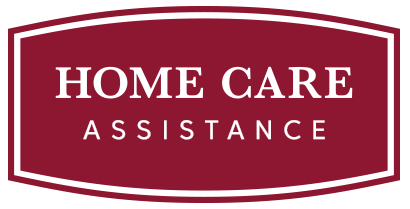Enhancing Home Care through Cultural Competence: Why It Matters

Cultural competence in home care is becoming increasingly important. As our societies grow more diverse, understanding and respecting cultural differences are crucial for delivering effective and compassionate care. In this blog, we’ll explore the significance of cultural competence in home care, the benefits it brings, and practical ways to implement it in caregiving practices.
Understanding Cultural Competence
Cultural competence refers to the ability to understand, respect, and effectively interact with people from different cultures. In the context of home care, it means recognizing and honoring the unique cultural backgrounds of clients while providing them with personalized care.
To achieve cultural competence, caregivers must be aware of their own cultural biases and work toward overcoming them. This self-awareness allows them to approach caregiving with open minds and a willingness to learn from their clients’ cultural perspectives.
Cultural competence also involves continuous learning and adaptation. Caregivers must stay informed about the cultural norms, values, and beliefs of the communities they serve. This knowledge helps them tailor their care plans to meet the specific needs and preferences of their clients.
Benefits of Cultural Competence in Home Care
Cultural competence in home care offers numerous benefits for both clients and caregivers. Firstly, it enhances the quality of care by ensuring clients’ cultural needs and preferences are respected. When clients feel understood and valued, they’re more likely to trust their caregivers and engage in their care plans.
Secondly, cultural competence reduces misunderstandings and conflicts that may arise from cultural differences. Caregivers who are culturally competent can effectively communicate with clients and their families, leading to clearer instructions, fewer misunderstandings, and better overall care outcomes.
Furthermore, cultural competence promotes inclusivity and diversity within home care agencies. By valuing and respecting different cultures, agencies create welcoming environments for both clients and caregivers from diverse backgrounds. This inclusivity fosters a sense of belonging and strengthens the overall caregiving community.
Building Trust & Rapport
Building trust and rapport is essential in home care, and cultural competence plays a significant role in this process. When caregivers understand and respect their clients’ cultural backgrounds, they can establish stronger connections and build trust more effectively.
One way to build trust is by showing genuine interest in the client’s culture. Caregivers can ask questions about their clients’ cultural practices, traditions, and preferences. This not only demonstrates respect but also helps caregivers tailor their care to align with their clients’ cultural values.
Another important aspect of building rapport is effective communication. Caregivers should be mindful of language barriers and use clear and simple language when communicating with clients who may have limited proficiency in the caregiver’s language. Additionally, using interpreters or translation services can ensure accurate communication and prevent misunderstandings.
Seniors can face a variety of challenges as they age, many of which can be mitigated with the help of professional in-home caregivers who provide high-quality senior care. Dallas families trust Home Care Assistance to help their elderly loved ones age in place safely and comfortably.
Practical Ways to Implement Cultural Competence
Implementing cultural competence in home care requires a proactive approach and ongoing commitment. Here are some practical ways for caregivers to enhance their cultural competence:
- Continuous education – Caregivers should engage in ongoing cultural competence training to stay informed about different cultural practices, beliefs, and healthcare needs. This training can include workshops, seminars, and online courses.
- Self-reflection – Caregivers should regularly reflect on their own cultural biases and assumptions. By recognizing and addressing these biases, they can provide more unbiased and culturally sensitive care.
- Effective communication – Caregivers should use clear and simple language, avoid jargon, and be mindful of nonverbal cues. They should also be patient and empathetic when communicating with clients from different cultural backgrounds.
- Cultural assessment – Caregivers can conduct cultural assessments to understand their clients’ cultural preferences, values, and traditions. This information can help them tailor their care plans to meet the unique needs of each client.
- Collaboration – Caregivers should collaborate with clients, their families, and other healthcare professionals to ensure a holistic and culturally sensitive approach to care. This collaboration can involve seeking input from cultural experts or involving family members in the caregiving process.
Aging in place can present a few unique challenges for older adults. Some only require part-time assistance with exercise or meal preparation, while others are living with serious illnesses and benefit more significantly from receiving live-in care. Dallas, TX, Home Care Assistance are leaders in the elderly in-home care industry for good reason. We tailor our care plans based on each senior’s individual needs, our caregivers continue to receive updated training in senior care as new developments arise, and we also offer comprehensive care for seniors with Alzheimer’s, dementia, and Parkinson’s.
Enhancing Client Satisfaction
Cultural competence directly impacts client satisfaction in home care. When clients feel their cultural values and preferences are respected, they’re more likely to experience higher levels of satisfaction with the care they receive.
One way to enhance client satisfaction is by incorporating cultural practices into the care plan. For example, if clients follow specific dietary restrictions due to cultural or religious reasons, caregivers can ensure these restrictions are respected and accommodated.
Caregivers can also create culturally inclusive environments by displaying cultural symbols or decorations that are meaningful to their clients. This small gesture can make clients feel more comfortable and valued in their own homes.
Additionally, caregivers should actively seek feedback from clients and their families regarding the cultural competence of the care provided. This feedback can help caregivers identify areas for improvement and ensure the care remains culturally sensitive and client-centered.
Overcoming Challenges
Implementing cultural competence in home care may come with challenges, but these can be overcome with the right strategies and mindset. One common challenge is the lack of cultural competence training and resources. To address this, home care agencies can invest in training programs and provide caregivers with access to cultural competence resources.
Another challenge is language barriers. Caregivers can overcome this by learning basic phrases in the client’s language or using translation services. Additionally, involving bilingual staff members can bridge the communication gap and ensure accurate understanding.
Caregivers may also encounter situations where cultural practices conflict with standard care procedures. In such cases, open and respectful communication is key. Caregivers should discuss the situation with the client and his or her family, seeking mutually acceptable solutions that honor both cultural practices and healthcare standards.
Promoting Inclusivity in Home Care Agencies
Home care agencies play a crucial role in promoting cultural competence and inclusivity within their organizations. By fostering diverse and inclusive workplaces, agencies create environments where caregivers feel supported and valued.
One way to promote inclusivity is by implementing diversity and inclusion policies. These policies should outline the agency’s commitment to cultural competence, provide guidelines for respectful interactions, and ensure equal opportunities for all employees.
Agencies can also celebrate cultural diversity by organizing cultural events, workshops, and training sessions. These initiatives not only raise awareness but also encourage caregivers to learn from each other’s cultural experiences and perspectives.
Furthermore, agencies should actively recruit caregivers from diverse cultural backgrounds. This diversity enriches the caregiving community and enhances the agency’s ability to provide culturally competent care to clients from various backgrounds.
The Role of Leadership in Cultural Competence
Leadership plays a vital role in promoting and sustaining cultural competence within home care agencies. Leaders should lead by example and demonstrate a commitment to cultural competence through their actions and decisions.
One way leaders can support cultural competence is by providing ongoing training and professional development opportunities for caregivers. This training should focus on cultural awareness, communication skills, and strategies for delivering culturally sensitive care.
Leaders should also create supportive and inclusive work environments where caregivers feel comfortable discussing cultural challenges and seeking guidance. Regular team meetings and open-door policies can facilitate open communication and collaboration.
Additionally, leaders can advocate for cultural competence at the organizational level by integrating it into their agencies’ missions, visions, and values. This alignment ensures cultural competence remains a core priority and guides the agencies’ practices and policies.
Enhancing Caregiver-Client Relationships
Cultural competence strengthens the caregiver-client relationship by fostering trust, understanding, and mutual respect. When caregivers take the time to understand their clients’ cultural backgrounds, they can provide care that aligns with their values and preferences.
One way to enhance the caregiver-client relationship is by building rapport through active listening. Caregivers should listen attentively to their clients’ concerns, needs, and preferences and respond with empathy and respect.
Another important aspect is showing cultural humility. Caregivers should approach each interaction with open minds and a willingness to learn from their clients. This humility creates a collaborative and respectful caregiving dynamic.
Caregivers can also incorporate cultural practices into daily routines to make clients feel more comfortable and valued. For example, if a client has specific prayer times, caregivers can schedule activities around these times to accommodate his or her religious practices.
Measuring Cultural Competence
Measuring cultural competence is essential for continuous improvement in home care. By assessing the effectiveness of cultural competence initiatives, agencies can identify areas for growth and implement targeted strategies.
One way to measure cultural competence is through client feedback surveys. These surveys can include questions about clients’ satisfaction with the cultural sensitivity of the care provided. The feedback collected can help agencies identify strengths and areas for improvement.
Agencies can also conduct self-assessments using cultural competence assessment tools. These tools evaluate various aspects of cultural competence, such as knowledge, attitudes, and behaviors. The results can guide agencies in developing targeted training programs and interventions.
Furthermore, agencies can track key performance indicators (KPIs) related to cultural competence, such as client satisfaction rates, retention rates, and caregiver diversity. Monitoring these metrics provides valuable insights into the impact of cultural competence on overall care quality.
Though you may be researching multiple agencies that provide home care service, Dallas, TX, Home Care Assistance has much to offer your family and your elderly loved one. We are leaders in the senior home care industry, offering proprietary programs like our holistic Balanced Care Method and around-the-clock assistance from reliable, experienced caregivers. Trust Home Care Assistance to help your loved one enjoy a happier and healthier life in the golden years. Contact one of our experienced Care Managers today at (214) 363-3400 to learn more about our reliable in-home care services.

